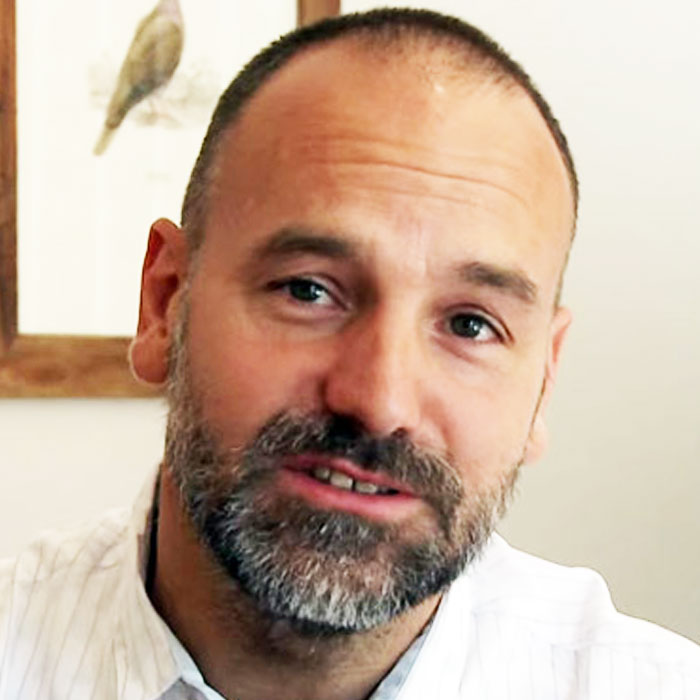
"A big part of willpower is having something to aspire to, something to live for."
- Mark Shuttleworth
With his early interest in technology, Mark Shuttleworth made himself a millionaire at a young age before founding Canonical Ltd. that provides leadership and sponsorship for the one of the most well-known free and open-source operating system, Ubuntu.
As a traveler, inventor and strategist, Shuttleworth that also passions for science fulfilled his lifelong dream to fly in space by becoming the first South African in space after an intensive training.
Early Life
Mark Richard Shuttleworth was born on September 18th, 1973, in Welkom, South Africa, as a son of a surgeon and a nursery school teacher. After attending school at Rondebosch Boys' High School and then Western Province Preparatory School and Diocesan College, Shuttleworth obtained a Business Science degree in Finance and Information Systems at the University of Cape Town.
During his studies, Shuttleworth lived in Smuts Hall, a men's residence on the upper campus of the University of Cape Town, where he was involved in the installation of the first residential internet connections at the university.
Thawte To Fortune
In the 1990s, Shuttleworth participated as one of the developers of the Debian operating system. In 1995, Shuttleworth founded Thawte which specialized in digital certificates and internet security.
Thawte was originally run from Shuttleworth's parents' garage in Durbanville. Thawte was first intended to produce a secure server not fettered by the restrictions on the export of cryptography which had been imposed by the U.S. Thawte uses the server that was an adaptation of the Apache HTTP server that was later integrated with the Stronghold web server as Thawte began to concentrate more on their certification activities.
In December 1999, Shuttleworth sold Thawte to VeriSign for $575 million. VeriSign and Thawte had certificates in the first Netscape browsers.
With the profits at hand, in the year 2000, Shuttleworth founded HBD Venture Capital firm, a South African portfolio of investments (an acronym for "Here Be Dragons") that offered growth capital to a range of early stage businesses, and Shuttleworth Foundation, a non-profit organization dedicated to social innovation which also funds educational, free, and open source software projects in South Africa. He also funds and serves on the board of Bridges.org, a voice for developing countries in the digital era.
Spaceflight
Mark Shuttleworth realized a lifelong dream to fly in space. In 2001, at a personal cost of $20 million, Shuttleworth bought a seat on a Russian spacecraft and began the First African in Space project. Shuttleworth undergo one year of training and preparation, including seven months spent in Star City, Russia for a mission aboard a Soyuz capsule to the International Space Station (ISS).
On April 25, 2002, Shuttleworth gained worldwide fame as the second self-funded space tourist and the first-ever African in space. He lifted off on Soyuz TM-34 with two cosmonauts, commander Yury Gidzenko of Russia and flight engineer Roberto Vittori of Italy, from the Baikonur Cosmodrome in Kazakhstan and docked two days later at the ISS. Shuttleworth spent eight days aboard the space station, where he conducted scientific experiments related to AIDS and genome research for South Africa. He returned to Earth aboard Soyuz TM-33 and landed in Kazakhstan on May 5, 2002. To ensure that he doesn't ever forget his experience, Shuttleworth has bought what remains of the capsule and kept his spacesuit.
Upon returning, Shuttleworth traveled and spoke about spaceflight to pupils around the world. He returned to his work in technology and created a project that created desktop and operating system software for free distribution to computer users, with a special focus on expanding personal computer access in developing countries: Ubuntu.
Linux Ubuntu
In March 2004 he founded Canonical Ltd., for the promotion and commercial support of free software projects. Through his private company Canonical Ltd., Shuttleworth led and sponsored the development of Ubuntu, a Linux distribution based on Debian. In the next year, he founded the Linux Foundation.
Shuttleworth led Ubuntu to be a computer operating system based on Debian that can be an alternatif to Microsoft Windows monopoly. Shuttleworth has stated that Ubuntu is designed to fulfill a dream of change; a belief that the potential of free software was to have a profound impact on the economics of software as well as its technology.
The technology behind Ubuntu is enormously influenced by Linux, GNU and the free software ecosystem. Ubuntu is meant to bring the community world (Debian, Fedora, Arch, Gentoo) and the restricted, commercial world of RHEL and SLES/SLED together, into one whole, with a commercial-grade release inherited by Debian that is freely available but also backed by an institution.
"Ubuntu is Debian's arrow, Debian is Ubuntu's bow," said Shuttleworth when he was asked about his view on the Ubuntu-Debian relationship.
Shuttleworth became the CEO of Cononical Ltd. for 5 years before stepping down in December 2009 to focus energy on product design, partnership and customers. Jane Silber that was the COO at Canonical since 2004 took the job as CEO.
Personal Life
Mark Shuttleworth holds dual citizenship of South Africa and the United Kingdom. After living in London since 2001, he currently lives on the Isle of Man.
Shuttleworth that made his debut as an internet tycoon in the 1990s got his honorary degree from the Open University for this work in 2010. He is currently one of the wealthiest South African by accumulating most of his wealth by the age of 27.
